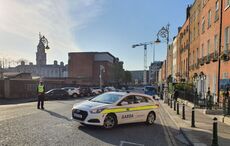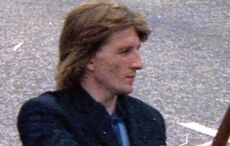A new documentary is set to uncover the life of an Irishman who became Winston Churchhill’s most trusted aide and likely prevented him agreeing to someone else becoming Britian’s war time Prime Minister.
Brendan Bracken was widely known to be a secretive Irishman who was Churchill’s spin doctor and confidant.
The author of Bracken’s biography, Charles Lysaght told the story during a memorial lecture at Churchill college, Cambridge.
"Bracken's great moment came in May 1940 when, following the fall of Norway, a large number of Conservatives failed to support the Government on a confidence vote. A national government was imperative, but the Labour party would not serve under Chamberlain.
If Lord Halifax was called upon to form a government, Churchill felt he would have to agree to serve. Chamberlain and David Margesson, the chief whip, called Halifax and Churchill to a meeting.
Before this took place Bracken exacted from Churchill a promise that he would remain silent if it was proposed Halifax should succeed.
This he did when Chamberlain and Margesson put forward the name of Halifax. After two minutes Halifax broke the silence and said he did not think that he, a member of the Lords, was in the best position to form a government.
It was, said Beaverbrook, who was closely involved, 'the great silence that saved England'."
During his tenure as the Minister for Information between 1941 and 1945, Bracken constantly attempted to conceal his Irish heritage.
A civil servant at the time called Eric Blair, disliked his authoritarian manner. Later in life, Blair adopted the pseudonym of George Orwell and penned the famous classic “1984” and the Minister for Information was renamed the Ministry for Truth in his novel.
A new documentary, “Brendan Bracken: Churchill's Irishman” has uncovered new secrets about the man.
Born in 1901 in Templemore, Co. Tipperary, Bracken was the son of a builder who was a member of the Fenian Brotherhood. In his early years he ran away and was regularly in trouble with the law and as a result his mother sent him to Australia.
Immersed in self-education he spent four years there. When he ended up in Britain in 1920, aged 19, he claimed he claimed to be four years his junior and began a life of subterfuge. He told people he was Australian and had been orphaned in a bush fire.
In his dying days in 1958, he requested that all his personal papers be burned to limit public knowledge of his life.
The film also uncovers that his rise to power was made possible by his prowess in subterfuge and some critics argue that Churchill may never have become Britain’s leader if it not for Bracken.




Comments